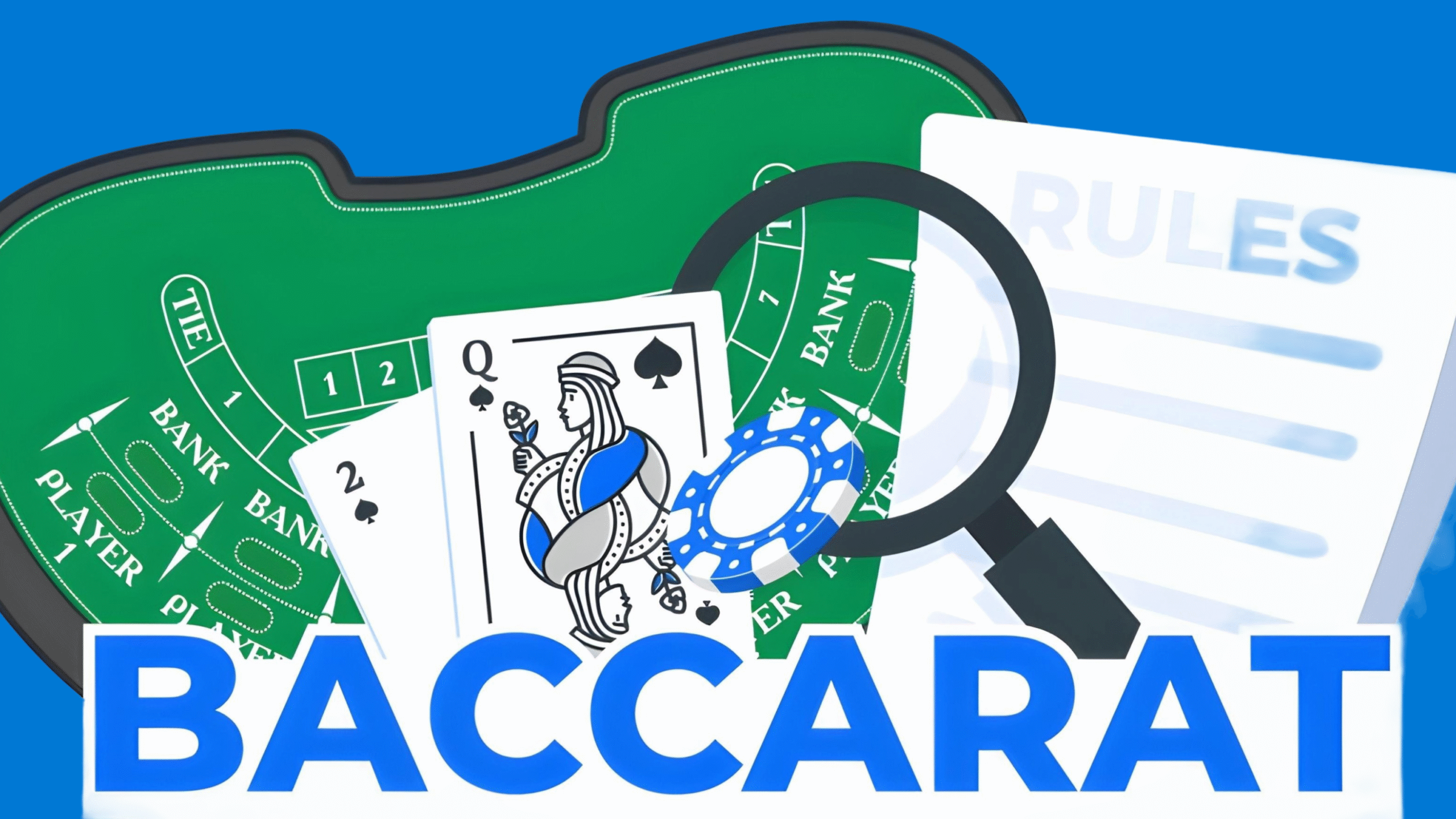Baccarat is a game of elegance, tradition, and strategy, and its popularity has reached global heights. In South Africa, just like in many other countries, baccarat is a favorite among casino-goers. But there’s one aspect of the game that often leaves players scratching their heads – the baccarat commission. If you’ve played baccarat in South Africa or are considering trying your luck, understanding how the commission works is essential. It directly affects your winnings and can have a significant impact on your overall strategy.
What is Baccarat?
Baccarat is a classic card game that has earned its reputation for being both elegant and surprisingly straightforward. It’s typically played with multiple decks of cards, often six to eight, shuffled together in a shoe. The main objective is simple: predict which of the two hands dealt—the Player or the Banker—will come closest to a total of nine. Unlike poker or blackjack, where players make many decisions during a hand, baccarat limits player choices after the initial bet, making it much more about luck than skill.
In the traditional setup, players have three main betting options before the cards are dealt. You can wager that the Player’s hand will win, the Banker’s hand will win, or that both hands will end in a tie. Each hand receives two cards to start with, and depending on the totals, a third card may be drawn according to a strict set of rules. The hand closest to a value of nine wins the round. Tens and face cards count as zero, while other cards keep their face value, and only the last digit of the total counts if it exceeds nine.
Although baccarat appears to be a purely luck-driven game, many seasoned players know that understanding the commission system can make a big difference over time. The casino edge in baccarat mainly comes from the small commission taken on winning Banker bets, which slightly tips the odds in the house’s favor. While it doesn’t completely overturn the fairness of the game, it’s an important detail that separates casual players from those who play with a strategy in mind.
When you sit at a baccarat table, you’re stepping into a world where simplicity meets subtle complexity. Even though the basic gameplay is easy to grasp, the underlying mathematics—especially when it comes to how commissions work—can have a real impact on your long-term results. Knowing these mechanics allows you to bet smarter and avoid common misconceptions, helping you make the most out of every session.
What is the Baccarat Commission?
| Bet Type | Winning Payout | Commission Applied | Effective Payout After Commission | Notes |
| Banker Bet | 1:1 | 5% on winnings | 0.95:1 | Slightly better odds despite commission |
| Player Bet | 1:1 | None | 1:1 | No commission, but slightly worse odds |
| Tie Bet | 8:1 or 9:1 (varies) | None | 8:1 or 9:1 | Very high house edge, risky bet |
| Banker Pair | 11:1 | None | 11:1 | Side bet with high volatility |
| Player Pair | 11:1 | None | 11:1 | Another side bet, usually not recommended |
How is the Commission Calculated?
Now that you know the commission exists, let’s dig into exactly how it’s calculated and how it impacts your payouts in baccarat. Understanding this can seriously change how you approach your betting strategy at the table.
- First off, the basic formula for the commission is straightforward. When you place a winning Banker Bet, the casino takes a small percentage—typically 5%—of your winnings as their commission. You don’t lose your original wager, but your profit is reduced slightly because of this cut.
- Here’s how the calculation works in practice. Imagine you placed a R100 bet on the Banker hand and won. Your winnings before the commission would be R100. Now, to find the commission amount, you multiply your winnings by 5%. That means R100 × 5% = R5. So, your final payout would be R100 – R5, leaving you with R95 profit in your pocket.
- As you can clearly see from the example, the 5% commission reduces your overall earnings slightly. It might not seem like much on a single bet, but over dozens or hundreds of hands, this little fee adds up and subtly shifts the long-term balance in favor of the house.
- The percentage of commission charged is absolutely crucial. At the standard 5% rate, you’re still getting 95% of your potential winnings from a Banker Bet. However, if you’re playing at a casino that charges a higher commission, like 10%, you would lose a bigger chunk of your profit, making Banker bets less attractive. On the flip side, some special promotions might lower the commission to 2% or even 0% temporarily, giving players a better edge if they spot the opportunity.
- It’s also important to note that different types of bets have different commission rules. Player Bets are simple and clean—there’s no commission applied. If you win a Player Bet, you just double your money with a clean 1:1 payout. No deductions, no hidden fees.
- Banker Bets are where the commission comes into play. Although they statistically offer a better chance of winning, you pay for that advantage with a 5% deduction on your winnings. It’s a small price for a slightly higher chance of winning, but it’s worth remembering every time you bet.
House Edge in South African Baccarat
Understanding the house edge in South African baccarat is absolutely essential if you want to make smarter betting choices at the table. The house edge, simply put, is the percentage of every wager that the casino expects to hold onto over the long term. It doesn’t mean you’ll lose that exact amount each time you play, but it does paint a pretty accurate picture over hundreds or thousands of hands. In baccarat, each type of bet — Player, Banker, or Tie — carries a different house edge. The Player Bet has a house edge of around 1.24%, the Banker Bet comes in even lower at about 1.06%, and the Tie Bet has a much steeper house edge of approximately 14.36%. Clearly, from a pure mathematics standpoint, betting on the Banker offers the best chance of success, even after considering commissions.
When you look at those numbers, it’s easy to see why seasoned baccarat players often lean heavily toward betting on the Banker. Even though a small 5% commission gets deducted from your winnings when you back the Banker, the house edge remains impressively low compared to other options. The Tie Bet, despite its tempting high payout, is statistically the worst choice you can make because of its enormous house edge. A 14.36% edge basically means the casino expects to earn a big chunk of every Tie Bet placed over time, making it a risky move for players hoping to build their bankroll steadily. South African baccarat tables are no exception — the math remains consistent across different countries and versions of the game.
Now, even with the 5% commission in place, the Banker Bet still manages to outperform the Player Bet from a probability standpoint. This might seem surprising at first glance, but it’s all thanks to the structure of the game itself. The Banker hand has about a 45.86% chance of winning any given round, slightly edging out the Player hand, which has a 44.62% chance. Meanwhile, the chance of a Tie occurring sits around 9.52%. Because the Banker wins just a touch more often, the casino offsets that natural advantage by shaving a little off your winnings with the commission. Still, even factoring in that fee, betting Banker offers the lowest risk for players who think long term.
If you’re serious about playing baccarat strategically in South Africa — or anywhere else — you need to embrace the role that the house edge and commissions play. Winning in baccarat isn’t about finding a magical pattern or beating the system; it’s about understanding the odds and positioning yourself where you have the smallest disadvantage possible. That means consistently betting on the Banker and accepting the small cost of the commission as part of the game. Over time, minimizing the house edge, even by fractions of a percent, can make a massive difference between walking away a winner or gradually draining your bankroll.
Understanding the Banker Bet Edge
| Bet Type | Win Percentage | Loss Percentage | House Edge | Special Condition |
| Banker Bet | 45.86% | 44.14% | 1.06% | 5% commission on wins |
| Player Bet | 44.62% | 45.38% | 1.24% | No commission applied |
| Tie Bet | 9.52% | 90.48% | 14.36% | Higher payout (8:1 or 9:1) |
| Banker Bet (No Comm.) | 50.68% | 49.32% | – | Only in commission-free games |
| Player Bet (Alt Variants) | 49.32% | 50.68% | – | Varies slightly by ruleset |
How the Commission Affects Strategy
Understanding how commission plays into baccarat outcomes is key to forming a smarter, long-term betting approach. Although the 5% commission may seem like a disadvantage at first, in reality, it’s a small price to pay for tapping into the Banker’s statistically better chances of winning. Let’s break down everything you need to consider when building a winning strategy around the commission.
- Choosing the Banker Bet for Long-Term Advantage
The Banker Bet has a 45.86% chance of winning, higher than the Player Bet’s 44.62% and dramatically better than the 9.52% chance of a Tie. Despite the 5% commission, the Banker Bet maintains the lowest house edge at 1.06%. Betting on the Banker consistently remains the smartest move when you prioritize probability over short-term payout amounts. - Balancing Commission Against Winning Probability
While it’s true that you pay a 5% commission on every Banker win, this amount is negligible compared to the increased likelihood of winning. The Player Bet doesn’t charge any commission, but the slightly lower win rate and slightly higher house edge of 1.24% mean you are less likely to come out ahead in the long run compared to the Banker Bet. - Impact of the Commission on Overall Payouts
Imagine you are placing 100 Banker Bets, each at R100. If the Banker hand wins approximately 45.86% of the time, you can expect around 46 wins. Without the commission, you would have earned R4,600 from these wins. However, with a 5% commission applied, you lose R5 per win, totaling R230 across all winning bets. Subtracting the commission from the total winnings leaves you with R4,370. Even after this deduction, the cumulative earnings still outperform what you’d likely achieve by betting on the Player hand over the same number of rounds. - Strategic Patience Is Essential
Winning at baccarat, especially when factoring in the commission, isn’t about chasing massive payouts. It’s about playing the odds consistently and accepting small, steady gains over time. Understanding that each win on the Banker hand comes with a 5% reduction prepares you mentally and financially for the realities of baccarat success. Instead of focusing on each individual outcome, a smart player thinks about results across hundreds of hands — where the Banker’s statistical advantage will steadily work in their favor. - When Might It Make Sense to Avoid the Banker Bet?
If a casino offers reduced commission promotions (such as a 2.5% commission or even a temporary “no commission” game variant), the Banker Bet becomes even more appealing. Conversely, if a casino inflates the commission beyond 5% (some rare cases can reach 10%), it may temporarily shift the edge closer to the Player Bet. Smart baccarat players always check the specific commission rate before settling into a long session.
Other Considerations for South African Baccarat Players
South African players should be aware that not all baccarat games follow the same commission structure. Depending on the casino or the specific variation of baccarat being played, the commission might differ slightly. While the traditional 5% commission on Banker bets is the standard, some casinos might offer games with a lower commission, typically ranging between 2% and 3%. On the other hand, there are rare cases where a higher commission is applied, especially in unique versions of the game. Therefore, it’s crucial to always check the rules and commission details before placing any bets. Being informed ahead of time helps avoid unexpected deductions from your winnings.
For high rollers in South Africa, commission structures can sometimes be negotiated or adjusted based on your betting behavior. Casinos value high-stakes players and often provide special perks to keep them engaged. In some cases, commissions might be reduced for VIP players, or additional bonuses could be awarded to offset the standard commission fees. If you are consistently wagering large amounts, it’s a smart move to speak with casino management or a VIP host to understand what benefits might be available to you. Leveraging these opportunities can significantly impact your overall profitability.
Online baccarat has grown immensely in popularity among South African players, offering even more flexibility when it comes to commissions. Many online casinos feature a wide range of baccarat variants, each with slightly different rules regarding commissions. Some online games even eliminate commissions altogether in exchange for slight adjustments to payout odds. It is essential to review the game rules carefully, especially when playing via mobile apps where the interface might simplify but not always highlight commission specifics. Choosing the right game with a favorable commission structure can improve your long-term success in online baccarat.




Post Comment